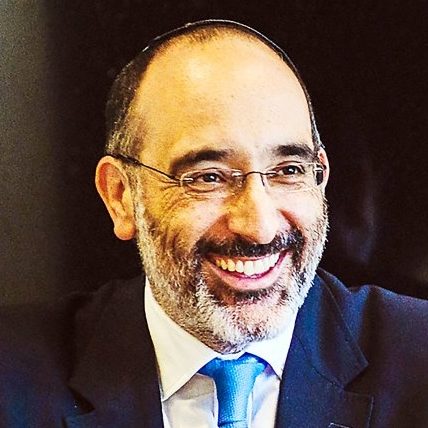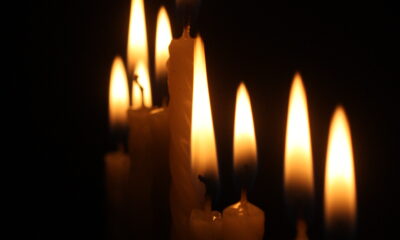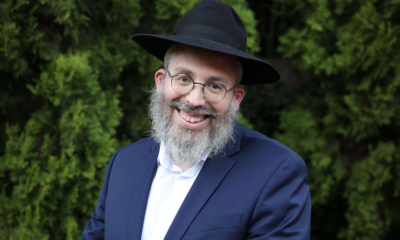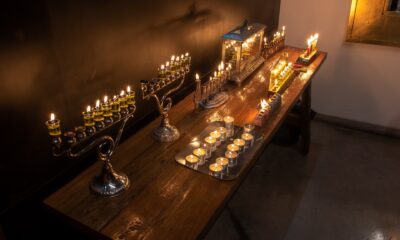
Parshot/Festivals

Ideas matter
Ideas matter. Great leaders are driven and express big ideas. Technical bureaucrats may put policies in motion, but the leaders who made a difference throughout history are those who understood the influential power of big ideas.
Nelson Mandela championed the ideas of non-racialism, national reconciliation, unity, and the dignity and equality of all human beings. At once diplomatic and formidable, it was the power of his ideas that drove him and liberated South Africa.
Winston Churchill inspired his generation by articulating the ideas that they were fighting for. The Allied soldiers of World War II weren’t just engaged in a battle over land, but a struggle for the soul of an entire continent. They were defending freedom and human dignity from the evil forces of fascism and destruction.
President John F Kennedy rallied the United States around his vision of standing up to Soviet aggression and promoting freedom and democracy around the world. He spoke movingly about the importance of altruism and of serving one’s country. President Ronald Reagan and Prime Minister Margaret Thatcher articulated a philosophy of protecting the independence and creativity of the human spirit, which needed to be shielded from government interference so that it could flourish and uplift society. President Barack Obama offered stirring rhetoric about a post-race America, and presented his own story as an example of the American dream and the vision of a society filled with opportunity for all.
Ideas matter. This is the essence of Judaism. Ideas – G-d’s ideas for our lives and our world. Jewish history shows how ideas can change the world. Look at how Judaism changed the trajectory of human history. What makes these ideas so potent is how they are translated into a programme of action, into a living wisdom. This is because G-d not only gave us the concepts that give meaning to our lives, but also the 613 mitzvot that help shape our days. These commandments, which are a blueprint for how we should behave in the world, are a practical expression of G-d’s profound ideas.
All of this comes to the fore at Chanukah, which was, in essence, a battle of ideas. The ancient Syrian-Greek empire had conquered most of the known world, including the land of Israel, and worked to impose its Hellenistic philosophy across the land. Having occupied and defiled the Temple and outlawed the observance of Shabbat and circumcision, the Syrian-Greeks pushed the Jewish people to worship idols of Greek g-ds and heed a philosophy that prized physical prowess and pleasures.
The Maccabees, who rose up against the Syrian-Greek soldiers, were engaged in a political and military struggle, but they were also – more profoundly – fighting for the core ideas of Judaism. Instead of a philosophy of idolatry and paganism, the Maccabees defended the Jewish belief in one G-d who created all of existence. He created every human being with a mission to improve themselves and the world through fulfilling His will, and to use their bodies and minds to do mitzvot, imbuing all with an immortal soul that carries the eternal merit of these deeds to the World to Come. The purpose of life is to do good. The Maccabees were driven to bring the ideas of Judaism back into their society, where even many of their fellow Jews were drawn to the ideas of Hellenism.
This is why the central miracle that we celebrate on Chanukah is the lighting of the flames of the menorah. The menorah, the golden candelabrum that stood at the centre of the Temple, represents the divine light of G-d’s gift of the Torah. When the Maccabees liberated the Temple, they famously found only a small vessel of untainted oil to light the menorah, yet it burned for eight days instead of one.
The miracle of Chanukah may seem modest when compared with the remarkable events that have shaped Jewish history such as splitting seas and manna falling from heaven. So why was an entire festival established to remember it? The answer is what the flames of the menorah represent: the divine ideas at the heart of Judaism that the Maccabees fought for. We light Chanukah candles to remind ourselves that being Jewish isn’t about culture or ethnicity – it’s about ideas. As we light the candles, we remind ourselves that ideas matter, that we should place the Torah’s eternal ideas and the actions that flow from them at the centre of our lives.
We are a nation and a people driven by noble ideas about being good and generous to others and improving ourselves, of drawing closer to G-d by dedicating ourselves to His will. As we light our Chanukah candles this year, let us remember that Jewish history has been one long struggle to bring these ideas to life, and that the beauty of the Torah is the way it translates these ideas into a blueprint for action. As we bask in the glow of the menorah, we must impart the lessons of these ideas to our children, because we know that the future of Judaism lies in inspiring the next generation with the eternal ideas of what it means to a Jew, and that it is the privilege of a lifetime.










